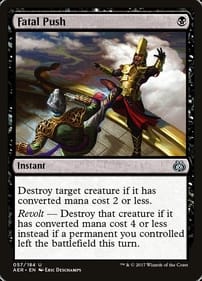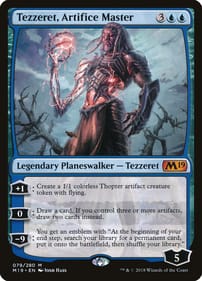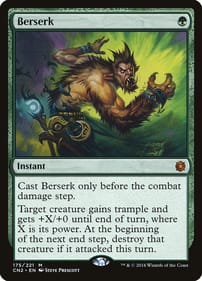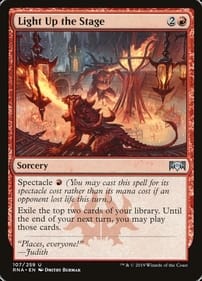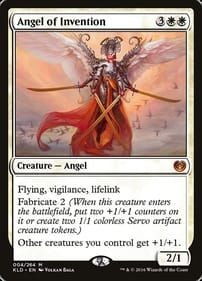Which MTG Format is Right for You?
Magic: The Gathering (MTG) offers a wide range of gameplay experiences through its various formats. These formats fall broadly into two categories: Limited and Constructed, each offering unique challenges and strategies. With set releases and evolving card legality, players play in diverse ways that keep the game fresh and engaging.
Limited Formats
Limited formats involve building a deck using a limited pool of cards provided at the start of the event. This levels the playing field and rewards adaptability.
Sealed
Sealed is a straightforward format, perfect for beginners. Players open six booster packs and build a minimum 40-card deck from the cards they receive. Basic lands are provided to complete the deck. Since the card pool is random, a strategy often revolves around making the most of what you have. Sealed is commonly played during prerelease events, where you’ll get a sneak peek at new MTG sets.
Booster Draft
In Booster Draft, players sit in a circle and open a single booster pack. Each person picks one card and passes the rest to the left. This continues until all cards from the first pack are drafted. The process is repeated for two more packs, alternating the direction of passing. After drafting, players construct a 40-card deck using the drafted cards and basic lands. Drafting requires quick decision-making and the ability to read signals about what colours or strategies other players are choosing.
Constructed Formats
Constructed formats involve creating a deck in advance from your personal collection. Decks must adhere to specific rules regarding size and allowable cards.
General Rules
In most Constructed formats, decks must have a minimum of 60 cards, and players can include up to four copies of any single card (except basic lands). Games are typically played one-on-one, with each player starting at 20 life. Mulligan rules follow the "London Mulligan" system: players draw a new hand equal to their starting hand size minus the number of mulligans taken, then put a card on the bottom of their library for each mulligan.
Standard
Standard is a rotating format that uses cards from the most recent MTG sets. This keeps the metagame fresh and accessible to newer players. Cards legal in Standard are from the latest legal sets, ensuring that deck construction evolves with each set release. Standard is ideal for players who want to stay current with the latest strategies and mechanics without investing in older, often pricier cards.
Pioneer, Modern, Legacy, and Vintage
These formats differ mainly in the size and scope of their card pools:
- Pioneer : includes all cards from sets starting with "Return to Ravnica" (2012) onwards. It’s a non-rotating format, meaning new sets are added but older ones remain legal. It balances accessibility with a broad card pool.
- Modern : features cards from "Eighth Edition" (2003) onwards, including a wide array of powerful cards but with a robust banned and restricted cards list to ensure balance.
- Legacy : allows almost every card in MTG history, with only a few banned cards to prevent broken interactions. It’s one of the oldest formats and appeals to players with extensive collections.
- Vintage : is the most permissive format, with nearly every card legal but subject to a "restricted list" where only one copy of certain powerful cards is allowed. Deck construction in Vintage often uses cards from the oldest sets in MTG history.
Pauper
Pauper is a budget-friendly format where only cards printed at the common rarity are legal. Despite its simplicity, Pauper offers deep strategic gameplay and is popular among players seeking an affordable entry into MTG. The format’s restricted list ensures balance while maintaining accessibility.

Multiplayer Formats
For those who prefer group play, multiplayer formats add a social element to MTG.
Commander / EDH
Commander, or EDH (Elder Dragon Highlander), is one of the most popular casual formats. Players build 100-card decks with no duplicates (except basic lands) and choose a legendary creature as their commander. Each deck must follow the colour identity of its commander. Games are typically played in free-for-all pods of 3-4 players, with each player starting at 40 life. The format’s singleton nature encourages creative deck building and showcases cards from older sets.
Brawl
Brawl is similar to Commander but limited to cards in the Standard card pool. Decks are 60 cards instead of 100, making Brawl a smaller, faster-paced version of Commander. It’s great for players who enjoy Commander-style gameplay but prefer Standard’s tighter rotation and legal set restrictions.
Two-Headed Giant
Two-Headed Giant is a team format where two players team up, each with their own deck, to face another team. Teams share a life total (starting at 30) and take their turns simultaneously. Coordination and synergy between teammates are key to success.
Magic: The Gathering Arena Formats
MTG Arena (MTGA) introduces digital-exclusive formats, making it easy to play online. These include:
Explorer
Explorer is MTGA’s version of Pioneer. It uses a non-rotating card pool that closely mirrors Pioneer’s physical format but is limited to cards available on MTGA. This format is perfect for those who enjoy Pioneer but prefer the convenience of digital play.
Historic
Historic is another non-rotating format but includes digital-only cards and mechanics. It’s a sandbox for innovative decks, featuring powerful cards unavailable in other formats. The introduction of banned and restricted cards keeps gameplay balanced.
Alchemy
Alchemy adds a digital twist to MTG, featuring modified versions of existing cards and new digital-only cards designed for dynamic gameplay. This format’s cards are often rebalanced to keep the metagame fresh, offering a unique experience for players on Magic: The Gathering Arena.
The Choice Is Yours
MTG’s diverse formats offer something for everyone, from drafting on the fly and building competitive decks to engaging in epic multiplayer battles. Wizards of the Coast keeps the game fresh by introducing new legal sets, ensuring dynamic card legality and gameplay. Try some these formats to discover the one that matches your playstyle and embrace the endless possibilities Magic: The Gathering has to offer.
Interested in exploring fresh formats or need more cards? Obsidian Games has you covered. Contact us today!


